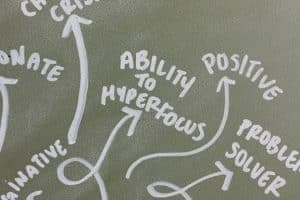Learning Theory: Modern Applications
Learning is a fundamental process that has been studied extensively for centuries. From ancient philosophers like Plato and Aristotle to modern-day psychologists, the concept of learning has been approached from various perspectives and has evolved significantly over time. While traditional learning theories have provided a strong foundation for understanding how individuals acquire and process information, the emergence of digital technologies and online learning platforms has transformed the way we learn. In this article, we will explore the modern applications of learning theories and how they have shaped the way we educate ourselves in the 21st century.
The Evolution of Learning Theories
Before delving into the modern applications, it is important to understand the evolution of learning theories. The earliest recorded theory of learning is that of classical conditioning by Ivan Pavlov in the late 19th century. This was followed by operant conditioning by B.F Skinner in the mid 20th century. Both of these theories focused on the role of external factors, such as stimuli and reinforcement, in learning.
However, in the 1950s, cognitive theories of learning emerged, shifting the focus to internal mental processes and placing an emphasis on the role of memory, attention, and problem-solving. The most well-known cognitive theorist, Jean Piaget, proposed that individuals actively construct their own knowledge through interactions with their environment.
Recently, social constructivist theories, such as Lev Vygotsky’s zone of proximal development, have gained popularity, highlighting the role of social interactions in the learning process. These theories suggest that learning occurs through collaboration and social interactions with others.
The Modern Applications of Learning Theories
The rise of digital technologies has created new opportunities for learning and has led to the development of new learning theories and approaches. Here are some of the modern applications of learning theories:
1. Personalized Learning
With the help of technology, learning can be tailored to meet the needs and preferences of individual learners. This is in line with the cognitive theories of learning, which suggest that learning is a personal and active process. Personalized learning platforms use algorithms and machine learning to adapt content and activities based on the learner’s progress and performance.
2. Gamification
Gamification is the use of game-like elements in non-gaming contexts, such as education. This approach is based on the principles of operant conditioning, where learners are motivated through rewards and positive reinforcement. Gamification has proven to be an effective way to engage learners and make learning more enjoyable and interactive.
3. Collaborative Learning
Social constructivist theories have paved the way for collaborative learning, where individuals learn from each other through discussions, group projects, and peer assessment. This approach is often used in online learning platforms, where students from different parts of the world can connect and learn from each other.
4. Blended Learning
Blended learning combines traditional face-to-face instruction with online learning. This approach utilizes the strengths of both traditional and online learning, providing a flexible and personalized learning experience. Blended learning is based on the idea that individuals learn differently and need a variety of methods to accommodate their learning styles.
5. Microlearning
Microlearning is a form of learning that delivers content in short, bite-sized chunks. This approach is based on the cognitive theory of attention, which suggests that our capacity to process information is limited. Microlearning is becoming increasingly popular in corporate training programs, as it allows employees to learn at their own pace and during their own time.
Conclusion
Learning theories have come a long way and have greatly influenced the way we educate ourselves today. The modern applications of learning theories have enabled us to learn in ways that were not possible before and have made the learning process more engaging, personalized, and effective. As technology continues to advance, it is likely that we will see even more innovative applications of learning theories in the future.
So, whether you are a student, educator, or industry professional, it is important to stay updated on the modern applications of learning theories and incorporate them into your learning and teaching strategies. After all, with the rapid pace of technological advancements, learning is an ever-evolving process that we must continue to adapt to in order to succeed in the 21st century.









